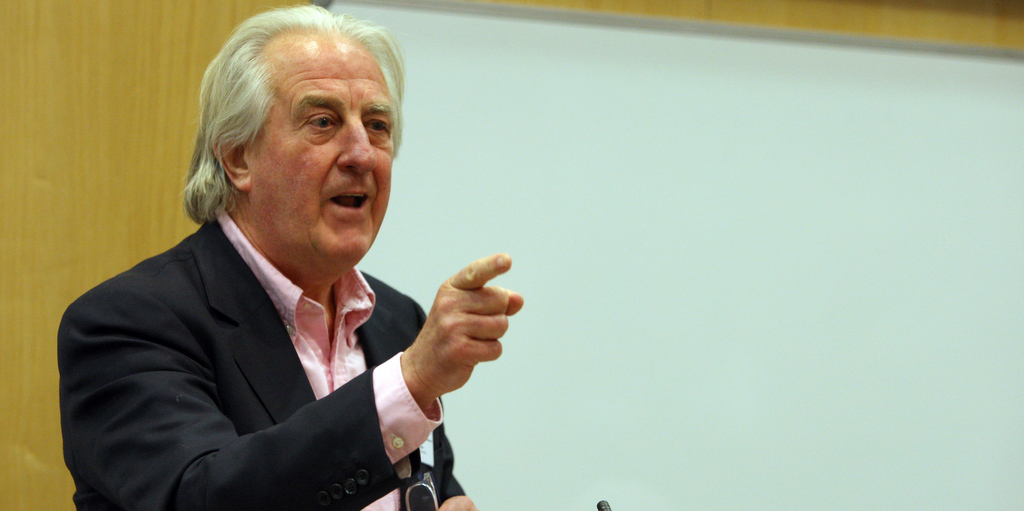
October 24, 2012, by Maggie
Capitalism in Crisis? Can Business be a force for good?
David Logan began the academic year here at Nottingham with a talk entitled – Capitalism in Crisis? Can Business be a force for good? David, whose career in CSR and business spans 30 years, had been invited to inspire our new cohort of students. His wide ranging talk gave our new arrivals a sense of the history; and a sense of a personal connection to the place (University of Nottingham) and the topic (Responsible Business).
To begin his talk David provided a historical context to modern day capitalism taking us on a journey that began with the Ur of the Chaldees (2000BC) and mapped an international course through the East India Company, via the Opium Wars, Russian Revolution, the student revolt, privatisation under Thatcher, the fall of the Berlin Wall and the current financial crisis.
To support his case that business can and indeed has long been a force for good he cited numerous examples including the creation of the University of Nottingham by Jesse Boot the founder of Boots the Cash Chemist, and quoted from DH Lawrence:
‘Nottingham’s New University’ in Pansies (1929)
In Nottingham, that dismal town
where I went to school and college,
they’ve built a new university
for a new dispensation of knowledge.
Built it most grand and cakeily
out of the noble loot
derived from shrewd cash-chemistry
by good Sir Jesse Boot.
Little I thought, when I was a lad
and turned my modest penny
over on Boot’s Cash Chemist’s counter,
that Jesse, by turning many
millions of similar honest pence
over, would make a pile
that would rise at last and blossom out
in grand and cakey style
into a university
where smart men would dispense
doses of smart cash-chemistry
in language of common-sense!
That future Nottingham lads would be
cash-chemically B.Sc.
that Nottingham lights would rise and say:
-By Boots I am M.A.
From this I learn, though I knew it before
that culture has her roots
in the deep dung of cash, and lore
is a last off-shoot of Boots.
(source: manuscripts and special collections)
Drawing on his experience he argued that responsible behaviour can build a brand, save money, is cost neutral and brings long term value to the business. He outlined how it can cost a little – but achieve a lot or alternatively, may cost a lot – but be worthwhile.
For new students of business his message was:
- Companies are here to stay – private companies are the agents of the market.
- They have great power and can have more wealth than some nation states.
- Multinational companies are truly global in their influence.
- Companies act rationally within the market system but need to engage stakeholders in the dialogue about the common good. If they do this they can reduce their negative impacts and promote inclusiveness
- Students will have real power through business – they should be sure to understand this power and that they have the values, commitment and skills to use it well.
David Logan is Co-founder and Chair Corporate Citizenship. He began working in corporate responsibility in 1980 with Levi Strauss & Co and rose to Director of Special Programs based in San Francisco, where he worked on ethical issues, and social and environmental responsibility. Since 1988 he has been a consultant on corporate social responsibility and in 1996 was the co-founder of The Corporate Citizenship Company, which subsequently joined the Chime Group in 2007 and merged with The Smart Company, to become Corporate Citizenship. He now works with a wide range of clients including: Golden-Agri, Vedanta, Unilever, Vodafone, Cadbury, Diageo, IFC, UNICEF, Abbott and Deloitte.
By Maggie Royston, Business Development & Centre Manager of the ICCSR, Nottingham University Business School
No comments yet, fill out a comment to be the first

Leave a Reply